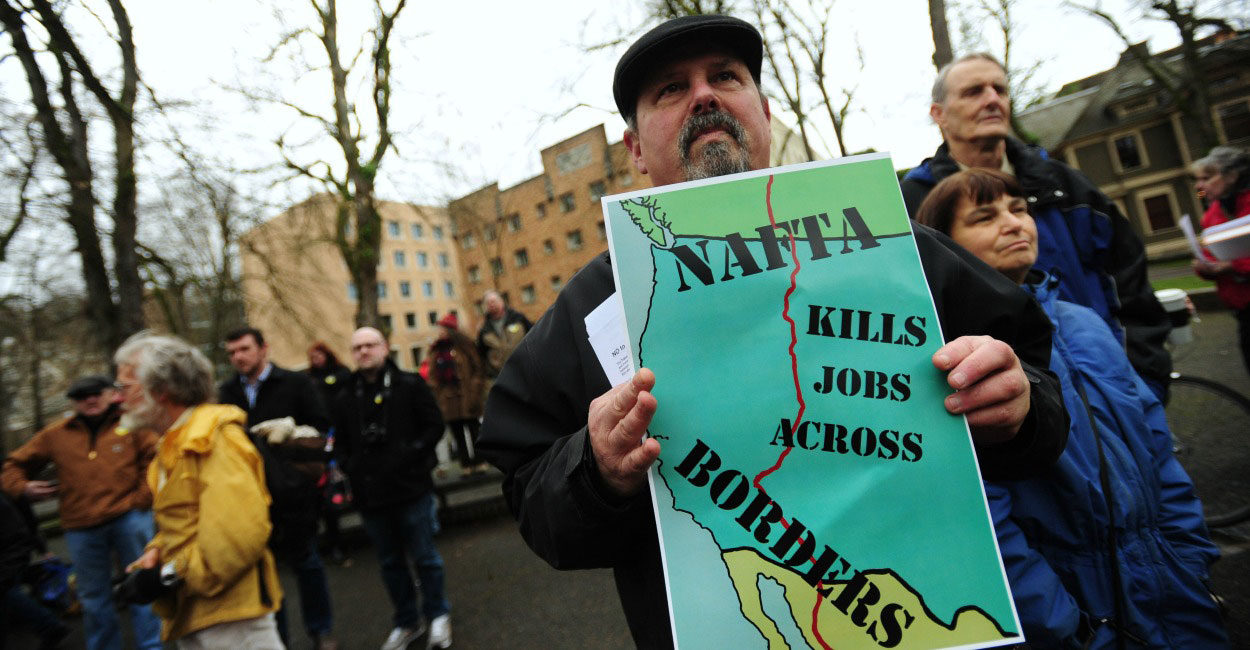It’s a big week for NAFTA
International Economic Law and Policy Blog | 9 October 2017
It’s a big week for NAFTA
Round 4 of the NAFTA renegotiation starts on Wednesday. After this round, we may have a better sense of the chances of a successful renegotiation. We have heard hints and rumors of a number of U.S. proposals, but this round may give us something more concrete. Here are some key issues to watch — the first three relate to liberalization (in some cases reversing it!), and the next three to dispute settlement.
Rules of origin on autos
A U.S. proposal to raise the required North American content levels, and include a U.S. content requirement, for auto trade might have the effect of excluding this trade from NAFTA’s zero tariffs, as companies decide not to bother with trying to comply and instead just trade at MFN rates. The policy here is terrible, moving us away from free trade, but there is still an interesting political question of whether members of Congress and the auto industry can effectively push back, and also how Canada and Mexico will respond.
Procurement
Opening up government procurement to foreign competition has long been a core feature of trade liberalization, but the U.S. seems to want to pull way back on this now. Canada and Mexico won’t like this at all, but how will they react? Will they just take away their own procurement liberalization in response? Will this be another instance of taking the free trade out of NAFTA?
Canadian agriculture restrictions
Canada is famous for closed markets in areas such as dairy. Will the U.S. push for liberalization of these markets? How can they expect to get this if they are proposing scaled back liberalization of the U.S. market in other areas?
ISDS
We are hearing that the U.S. is proposing some kind of "opt in" for ISDS. I don’t fully understand the proposal. Would this opt-in take place at the end of the negotiation or some time after? Is it a one-time choice, or can the country change its mind later? And politically, I’m not sure how it could get much support from either the pro- or anti-ISDS camps in the U.S., although maybe some clarity on what exactly the proposal is would change how I see this.
Chapter 20 Dispute Settlement
The main problem I see with Chapter 20 dispute settlement is the broken panel selection process, but apparently the U.S. wants to "soften" the process in some way. I don’t understand exactly what they have in mind, but it’s hard to see how anyone would be on board with this.
Chapter 19 Dispute Settlement
This one is simple: The U.S. wants to eliminate it, while Canada and Mexico want to keep it, possibly with some reforms. Is there any middle ground to negotiate here?
The big question hovering over the talks is this: Does the Trump administration want a successful NAFTA renegotiation? To reach an agreement, there has to be some balance. If Canada and Mexico concede on everything, the deal would not be politically acceptable for them back home. Can a balanced deal be reached? Or, as some people think, is the Trump administration hoping for failure so that they have an excuse to withdraw? At that point, we have to start thinking about what Joel has been saying.






